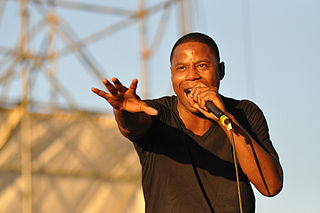A Quote by Jean Vanier
When we love and respect people, revealing to them their value, they can begin to come out from behind the walls that protect them.
Related Quotes
When people are too present, too familiar or too in our face, something happens to us psychologically. We begin to tune them out, we begin to get sick of them, we begin to know them so well and become so familiar with who they are that we loose a bit of respect for them. You pass a certain threshold with the fact that you're too present in their lives, too much in their face and once that threshold is passed you're never going to repair it they have lost a certain respect for you.
Superhero power... I probably would just want to fly. I definitely would not want to be able to see through walls. I think walls are there for a reason. People put them up for a reason. You don't want to be looking through them. That would only cause nothing but misery and angst to know what's happening behind people's walls.
You can build walls all the way to the sky and I will find a way to fly above them. You can try to pin me down with a hundred thousand arms, but I will find a way to resist. And there are many of us out there, more than you think. People who refuse to stop believing. People who refuse to come to earth. People who love in a world without walls, people who love into hate, into refusal, against hope, and without fear. I love you. Remember. They cannot take it.
Rather than going after our walls and barriers with a sledgehammer, we pay attention to them. With gentleness and honesty, we move closer to those walls. We touch them and smell them and get to know them well. We begin a process of acknowledging our aversions and our cravings. We become familiar with the strategies and beliefs we use to build the walls: What are the stories I tell myself? What repels me and what attracts me? We start to get curious about what’s going on.
If we wait for some people to become agreeable or attractive before we begin to love them, we will never begin. If we are content to give them a cold impersonal 'charity' that is merely a matter of obligation, we will not trouble to understand them or to sympathize with them at all. And in that case we will not really love them, because love implies an efficacious will not only to do good to others exteriorly but also to find some good in them to which we can respond."
It's difficult because you can't generalise about these things. But in essence, you deal with children as simply as you deal with actors - you have to show a certain sort of respect. You deal with them lovingly and protect them, but if you protect them enough then they're open to engage with what you want to do with them.
You know the troubles I've had with my two older children. I can't understand why it turned out so badly. I tried to give them everything. I loved them and tried to keep them near me, even when they didn't return my love. Well, I couldn't make them love me, but they could have shown some respect. I couldn't insist on love, but I could insist on respect.
When I first started writing plays I couldn't write good dialogue because I didn't respect how black people talked. I thought that in order to make art out of their dialogue I had to change it, make it into something different. Once I learned to value and respect my characters, I could really hear them. I let them start talking.
In all my documentaries, I have great respect for the people I work with. Really, I love them. And it's very important for me that when I finish a movie, they stay my friends. It's important that they won't feel that I in any way manipulated them or showed them in a bad light. I want to show them in all their reality - not as subjects but as people with flesh and blood - but I want to do this with all my respect.
I begin to see what marriage is for. It's to keep people away from each other. Sometimes I think that two people who love each other can be saved from madness only by the things that come between them - children, duties, visits, bores, relations - the things that protect married people from each other.
It's good to be young and full of dreams. Dreams of one day doing something 'insanely great.' Dreams of love, beauty, achievement, and contribution. But understand they have a life of their own, and they're not very good at following instructions. Love them, revere them, nurture them, respect them, but don't ever become a slave to them. Otherwise you'll kill them off prematurely, before they get the chance to come true.
Let's not forget: This all began when you had eight- and nine-year-old children writing graffiti on walls. Their parents were told: "You will never see them again. If you want to have children, go to your wife and make new ones." [Bashar] Assad's people rebelled. He crushed them brutally. But his military could not protect him. So he asked the Iranians to come in and help.









































